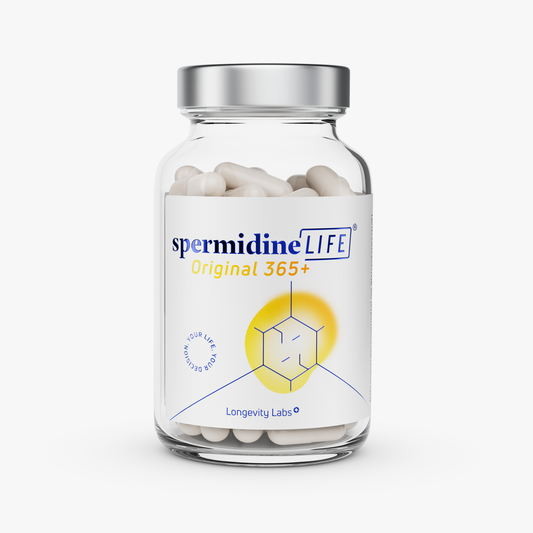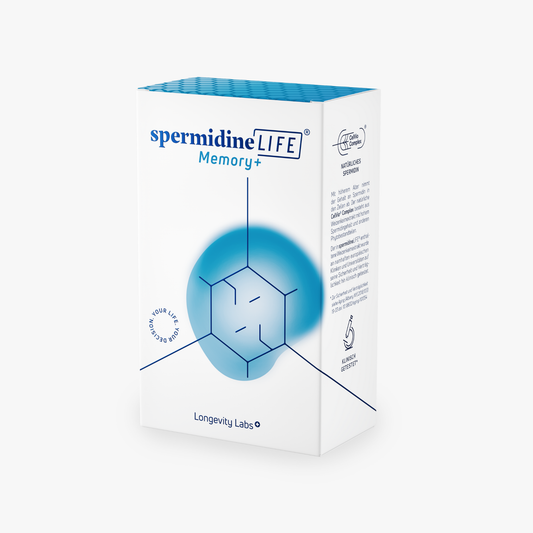
Prevent autumn depression: this is how it works!
TLL LongevityLabsDo you also wonder every fall why you suddenly have less energy and feel sluggish and tired? If so, we can reassure you: This type of autumn depression affects about 10%-20% of people every year - especially women. But what is the autumn blues and what happens in our cells? How can we prevent it? The answer sounds simple at first: exercise, sun and a healthy diet. But there is much more to it than that!
Let's start at the beginning
Strictly speaking, autumn depression is not depression in the true sense of the word. This is because, unlike classic depression, the causes of a depressive mood or episode over the colder months are not to be found in the person themselves, but are due to external circumstances. For this reason, it is also referred to as "seasonal depression" in technical jargon. But why are our cells (and mood) actually dependent on the seasons?
How does autumn depression develop?
As you can also read in more detail in our blog about healthy sleep and the vegetative nervous system, our body reacts without interruption to changes in the environment. One of the most important biochemical processes in our cells is the regulation of our internal clock and the day-night cycle. Sunlight causes our brain cells to produce serotonin (a happiness hormone) and norepinephrine, which make us more cheerful and alert.
Meanwhile, increased darkness causes the hormone melatonin to be produced more. You can probably already guess what this hormone is responsible for: In sufficient concentration, it signals to our bodies that we need sleep.
In the months when the days are shorter, the sun shines less and the temperatures drop, the result is probably no surprise: we feel tired, sluggish and depressed. But of course, caution is advised here. Not every bad day, or every stressful time should immediately be classified as (seasonal) depression. On the other hand, you should not ignore signs of a depressive episode. So, if you (or those around you) notice symptoms that remain unchanged for more than two weeks, keep an eye on them and seek help if needed.
The classic symptoms of autumn depression
All right, but what are these signs to look out for?
In addition to the increased fatigue, sluggishness and dejection mentioned earlier, there are also less obvious symptoms of seasonal depression such as difficulty concentrating, listlessness, decreased motivation and an increase in appetite and accompanying weight gain!
At this point, it is also worth mentioning one of the most important differences between the symptoms of classic depression and seasonal depression. In a "conventional" depression, usually a decrease in appetite accompanied by weight loss are seen. However, self-diagnosis is highly inadvisable here as well.
Finally, each person can individually show different symptoms of mental illness. So if you are ever unsure, be sure to consult a doctor or someone you trust.
However, as we described at the beginning of our blog, the primary factor that differentiates seasonal depression from endogenous depression is not the symptoms, but the cause. Since autumn or winter depression is primarily triggered by external circumstances, it can also be prevented more easily!
Prevent the autumn depression
Here you will find the best tips with which you can hopefully prevent the bad mood of the depressing months!
1. let a light come on
If darkness and lack of sunlight are the primary causes of low mood, why not counteract the very problem? Whether through walks, vacations in sunny countries, or - if that's not possible - a daylight lamp, sufficient light, especially in the morning hours, ensures that we become more alert and energetic. Because light stimulates the production of vitamin D, serotonin and noradrenaline! So however it is possible for you: light, light, light is the motto for your cells!
2. adjust your diet
Seasonal depression can lead to an increased need for carbohydrates and sweets. But even if the piece of chocolate in between can even be helpful, because chocolate releases happiness hormones, it is advisable in a time of depressed mood and increased cravings to pay attention to a balanced and healthy diet. Especially fish, vegetables or even nuts can help your cells to stay in balance!
3. sufficient exercise
A classic health tip, but no less important for that: sport and regular exercise, especially in the fresh air, can work wonders when it comes to the autumn blues! Many studies have already proven the mood-lifting effect of sport. At the same time, varied, sporting activity also ensures less tiredness, increases the blood flow to all our cells and gets our bodies moving.
4. maintain social contacts
In times when we are mentally worse, we tend to isolate ourselves. But it is during these times that it is especially important for us to turn to our friends and family. At the same time, social interaction stimulates our brain cells and thus also helps against concentration problems, while it gets our gray cells going.
5. do not be too hard on yourself
Often it is the fear of being in a bad mood that causes bad moods. What we mean by this? When we put pressure on ourselves to always be in a good mood, that very stress can eventually lead to negative mood. We all have bad days sometimes - they're unavoidable, unfortunately! But they will go away faster if you accept them and make the best of them. Tomorrow is another day!
6. professional help
If nothing helps, or if your symptoms are particularly severe, don't hesitate to talk to a doctor and get professional help.
Conclusion
The cold season is a challenge for many every year. The temperature drops, the weather gets worse, and the days are short and gray. The lack of sunlight quickly puts a damper on your mood and you often feel crushed by the fall and winter months.
Fortunately, there are some tips & tricks that can quickly counteract the low mood: Daylight lamps, exercise and a balanced diet for example! However, if you, or people around you, show signs of more severe (seasonal) depression, talk to a trusted person or doctor!
More information for friends and relatives can be found here.






